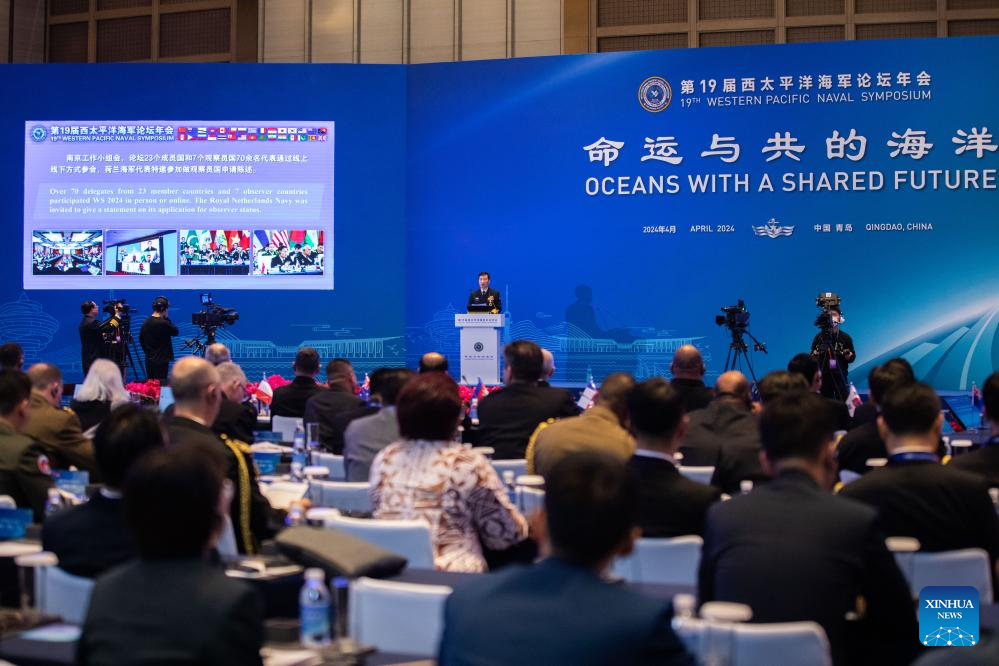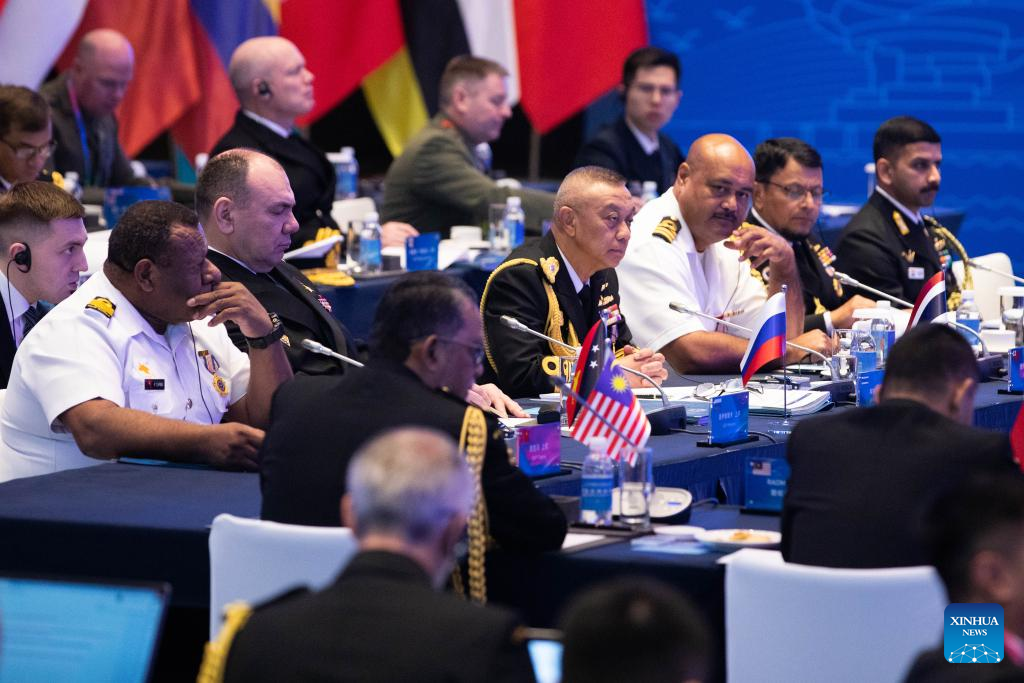
Japanese scholars and former officials are calling for effective communication between security experts from Japan and China and close exchanges between the governments of the two countries to enhance mutual trust, resolve issues through dialogue, and prevent unforeseen circumstances.
The Japan Maritime Self-Defense Force recently said it will dispatch a special security unit to the so-called Indo-Pacific region in May or later to help the coast guards of those countries enhance their inspections of suspicious ships and other skills. Details regarding the destination of the unit and the duration of the mission have not been disclosed.
ALSO READ: 19th Western Pacific Naval Symposium opens in East China
This will mark the first time an SDF special unit provides support for foreign agencies.
Ryo Sakai, chief of staff of the Japan Maritime Self-Defense Force, emphasized that “while the special security unit possesses a wide range of capabilities, their mission is limited to providing basic capacity-building support and should not raise concerns or doubts among other countries,” said Kazuyuki Hamada, an international political economy scholar.
Kazuyuki Hamada, an international political economy scholar noted that Japanese citizens bear the burden of a history in which they once engaged in armed conflicts with neighboring countries in Asia, resulting in significant damage
“However, the current situation lacks sufficient explanation. Sakai also explained that there are no military objectives targeting specific countries but it is undeniable that this deployment is part of defense cooperation with the United States,” said Hamada, who is also a former Japanese parliamentary vice-minister for foreign affairs.
READ MORE: A maritime community for promoting peace
He noted that Japanese citizens bear the burden of a history in which they once engaged in armed conflicts with neighboring countries in Asia, resulting in significant damage.
“Considering the lessons from the past, Japan should calmly analyze the problematic aspects of the United States’ expansionist economic and military policies and aim to pioneer initiatives based on the concept of a community with a shared future for mankind,” Hamada added.
Nowadays Japan is accepting joint military actions with the US and countries allied with the US, said Ukeru Magosaki, a former senior official with Japan’s Ministry of Foreign Affairs.

These are beyond Japan’s borders and those of its neighbors, he noted, adding that they are taking place in the context of the US positioning China as its greatest competitor and seeking to cooperate with countries surrounding China to establish a cooperative framework.
“There used to be a cautious era in the Japanese government regarding such moves, but now it seems that there is hardly any framework for such restrictions,” added Magosaki, a co-representative of the Association for Inheriting and Propagating the Murayama Statement, a Japanese civic group dedicated to upholding the 1995 statement admitting Japan’s wartime mistakes.
“In regards to Japan’s relationship with China, I believe it is necessary to examine each specific issue that may arise, consider what agreements exist, and assess the potential for resolution through dialogue. Many of these issues are either already resolved or have a high potential for resolution through non-military means,” he said.
READ MORE: Western Pacific Naval Symposium to kick off in China's Shandong
It is important to explain to the public and ensure they understand that there is no need to resort to military means, Magosaki added.
Over 180 navy representatives from 29 countries gathered for the 19th biennial meeting of the Western Pacific Naval Symposium, which opened on Monday in Qingdao, a port city in East China’s Shandong province.
Risk avoidance measures for accidental conflicts were discussed at the meeting, Hamada said. He said that he hopes such opportunities will contribute to enhancing mutual trust.
“With effective communication between security experts from Japan and China, it should be entirely possible to prevent unforeseen circumstances. Therefore, political-level communication channels and close exchanges between governments are indispensable,” he said.


